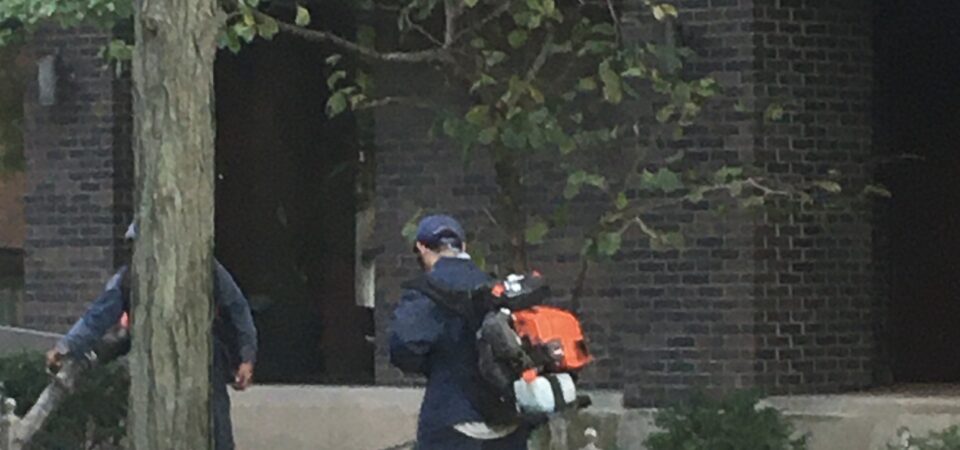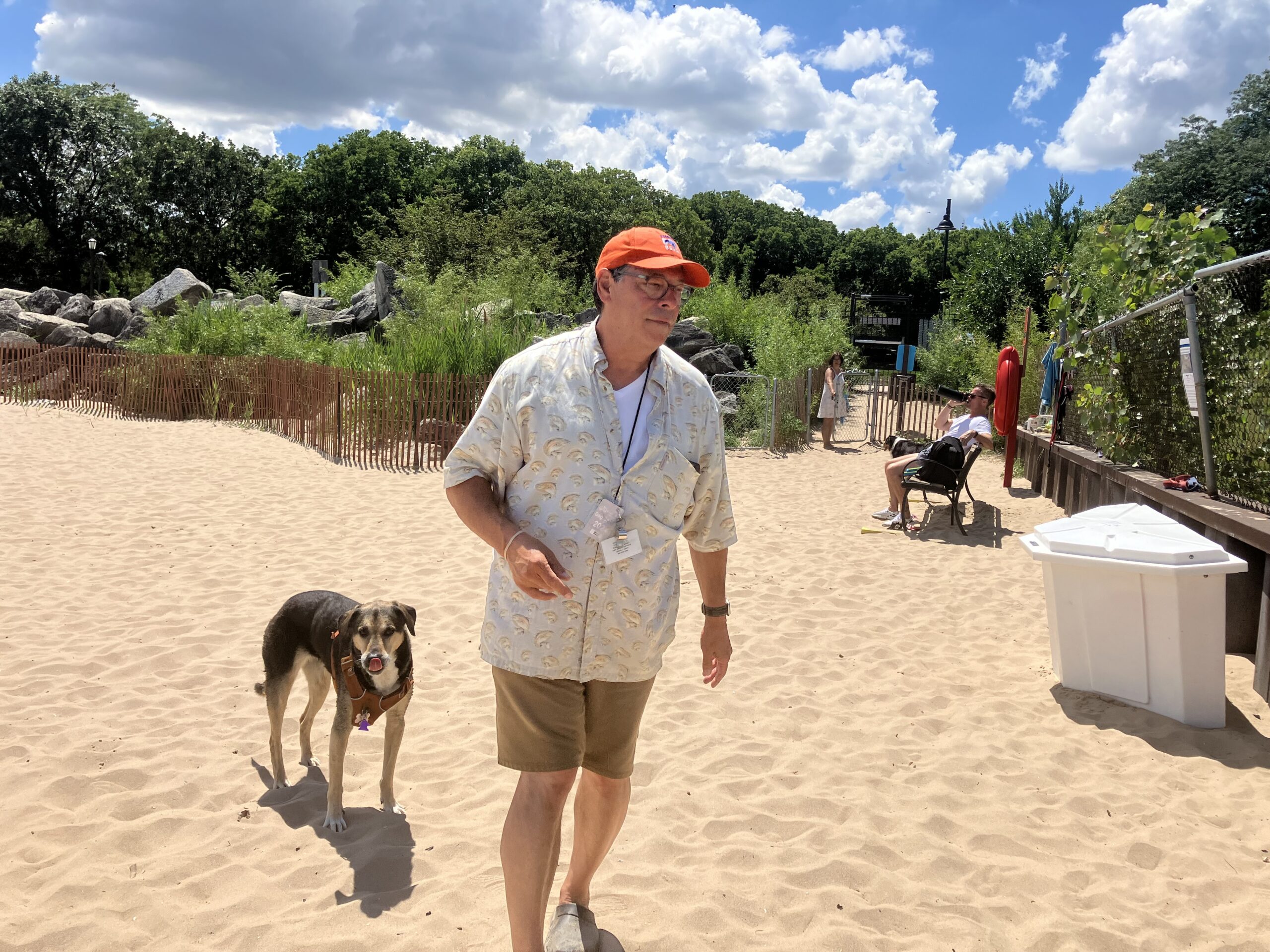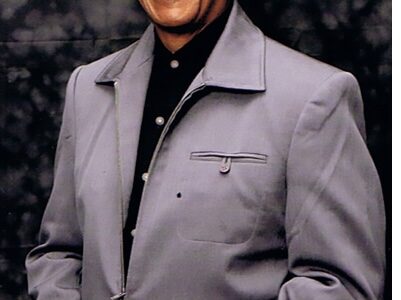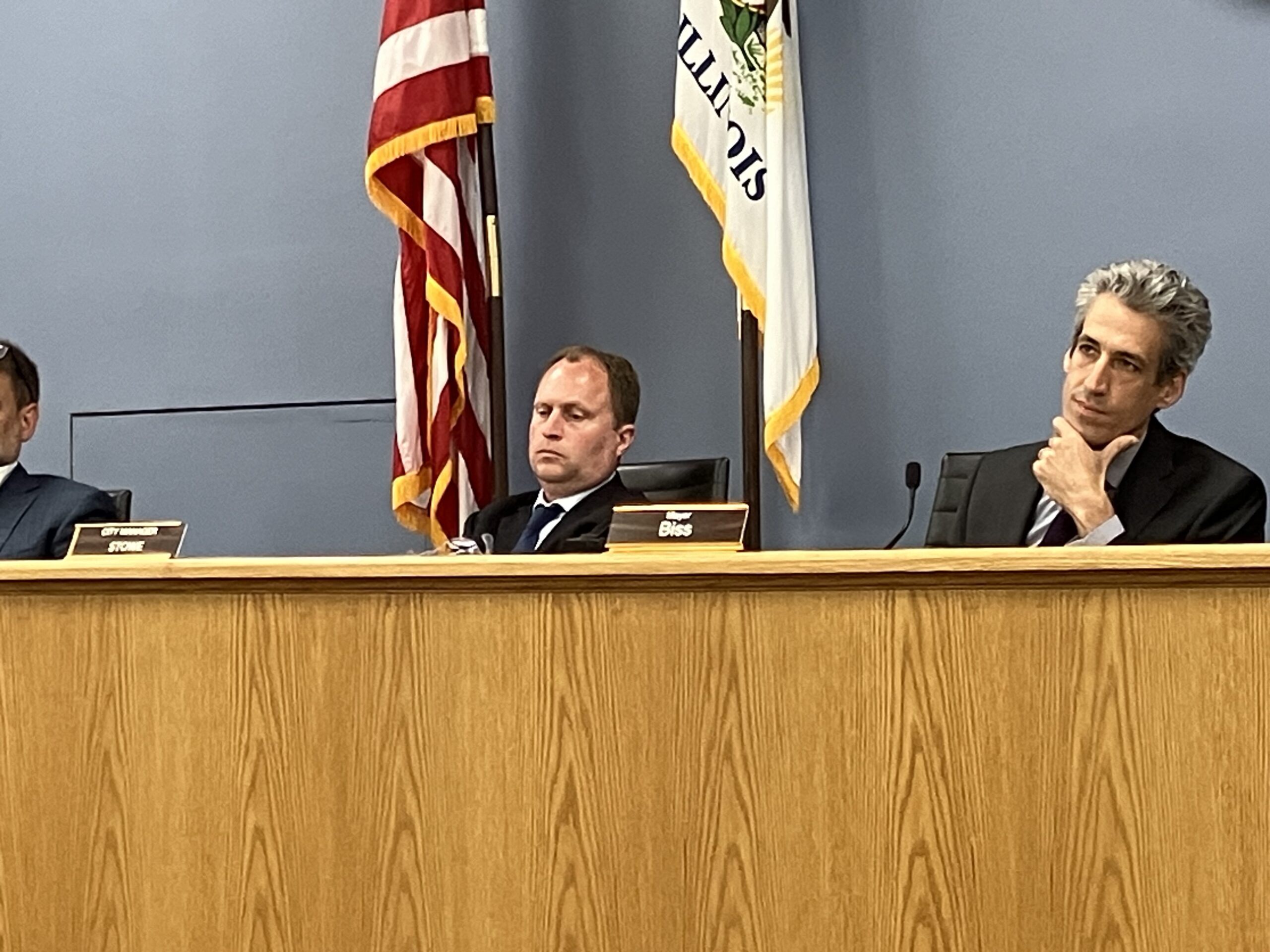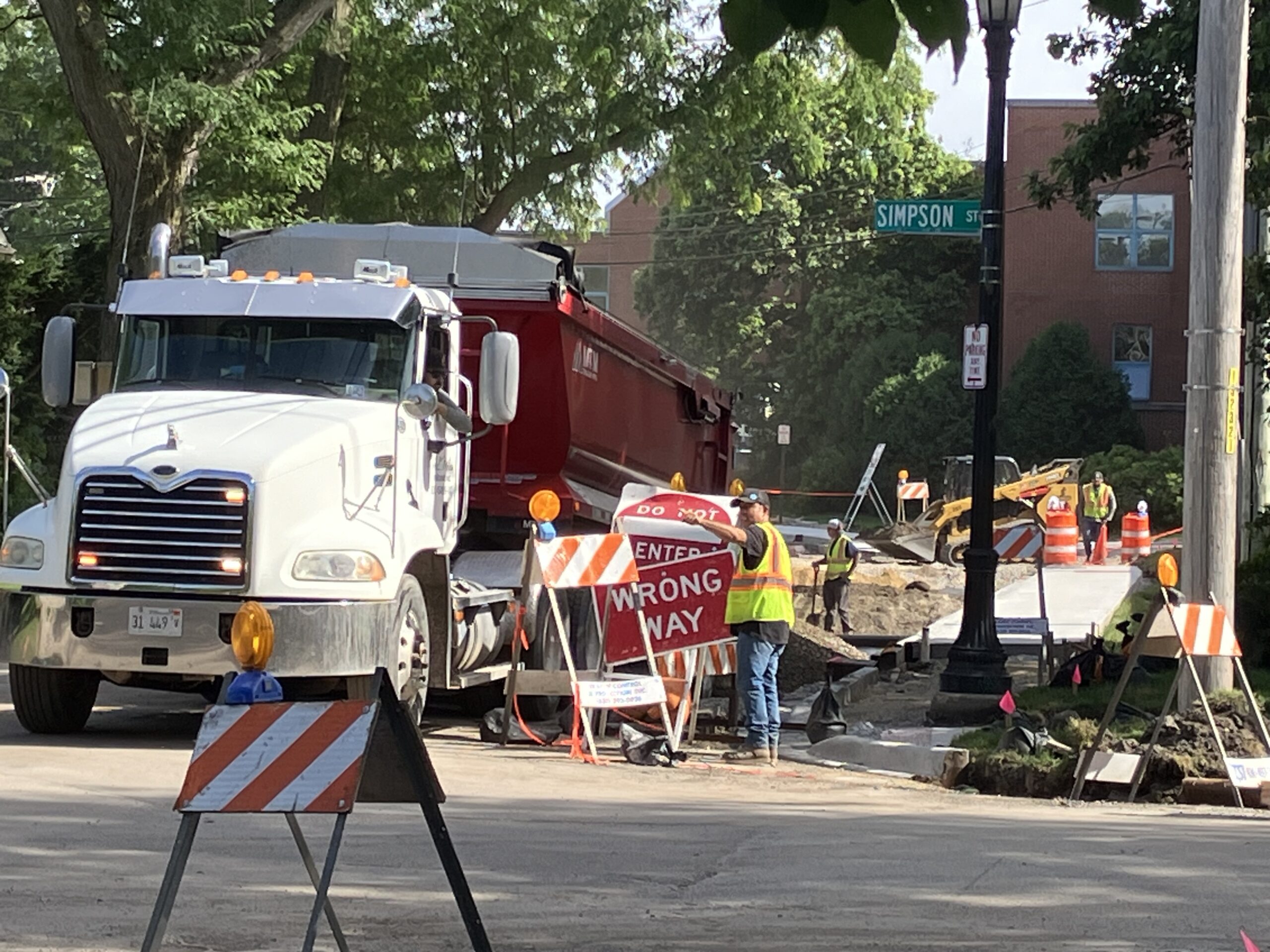By Bob Seidenberg
rseiden914@gmail.com
Evanston City Council members are expected to debate and possibly approve a new leaf blower policy at their meeting November 8 that calls for transitioning from gas-powered to electric-powered blowers.
The ordinance amends the time and days when leaf blowers are permitted to be used, sets a new fine structure, establishes penalties and calls for a transition from the use of gas-powered leaf blowers to electric blowers effective April 1, 2023, noted Cara Pratt, the city’s new Sustainability and Resilience Coordinator in a memo to council members October 25 summing up the proposed changes.
Members of the city’s Environmental Board brought the proposed changes to the council last year, in line with the city’s Climate Action and Resilience Plan (CARP) which recommended that officials “phase out the use of gas and propane-powered leaf blowers and construction equipment” and “provide a timeline by which they need to be replaced with electric or battery-powered options.”
The CARP document calls for achieving carbon neutrality by 2050.
A number of local environmentalist groups also have called for banning the use of gas-powered leaf blowers, citing noise pollution and environmental health, as well as the effect on wildlife habitats among their concerns.
Under the proposed ordinance, before April 23, 2023, gasoline-powered or propane-powered leaf blowers may only be used from March 30 to May 15 and October 15 to the first Thursday in December.
There are no seasonal restrictions, however, on the use of electric-powered leaf blowers.
The proposed changes include:
* Limiting the hours any leaf blowers may be used to 9 a.m. to 5 p.m. weekdays, 9 a.m. to 4 p.m. on Saturdays and noon to 4 p.m. on Sundays.
* Leaf-blower use would be eliminated altogether on all city recognized holidays under the proposed changes.
* The ordinance’s penalty fine structure has been modified to provide for first offenses and escalating fines for repeat violations.
* A first offense for a violated use on restricted days would be a written warning. A second offense would be subject to a $100 fine; a third offense $150; a fourth offense, $200; and fifth and any subsequent offenses would be $250.
* The proposal clearly establishes that “any person who uses a leaf blower or permits the private or commercial use of a leaf blower on their property” can be subject to the penalties.
Question about exclusions
As initially written, the ordinance restrictions do no not apply to city baseball fields, golf greens and construction projects involving paving, repair or patching of public streets.
In discussion at the council’s October 25 Planning and Development Committee meeting, Michael O’Connor, a member of the Canal Shores Golf Course Board, requested that the language stating an exception for the greens should be changed to “in-play areas of the golf course.”
“These additional areas would include, of course, the tees and the fairways,” he said, adding: “Canal Shores prides itself on its commitment to the ecology of the property, and is steadfast in preserving the property in the most environmentally sensitive way possible, now and in the future.”
O’Connor told committee members that Canal Shores, an 18-hole public course which runs through Evanston and Wilmette, “has already purchased and begun using battery-powered backpack blowers as of this past spring to maintain our putting greens when the cleaning job is light.”
However, he said the technology “is not currently available for blowers to clear the more vast areas like the fairways and the tee boxes and even the greens” at certain times.
“To clear these areas we must use a more powerful, sometimes called a ‘buffalo blower’,” he said, and “when a sufficiently powerful blower of this type comes available in a battery form we’ll migrate to it just the same way we have with the backpack blowers.”
Committee members voted in support of adding O’Connor’s suggested language.
In further discussion of the exceptions, Council member Devon Reid, 8th Ward, argued the city should be in full compliance.
“I think the city should be leading on this part,” he said. “I’ve heard the discussion before that we have a large amount of land to care for. But I think we should do this one.”
Council member Eleanor Revelle, 7th Ward, chairing the meeting, said the city will be challenged as it is with the city baseball fields and artificial turf fields as exceptions “but all of our 72 parks will have to be maintained per the amended policy, so the city is going to be challenged to make that transition.”
Fourth Ward Council member Jonathan Nieuwsma, who like Revelle was active in environmental issues before his election to the council, said “challenging” in this case should not be viewed in the sense of “go for it,” or “try to get,” but “the city is going to comply,” he said.
“Exactly,” responded Revelle.
Council member Bobby Burns, 5th Ward, asked about enforcement and how the city would determine who is liable to the fine.
Council member Revelle acknowledged there is more work to be done in that area.
“We know that we need to do more work on figuring out effective enforcement,” she said. “We also need to do a serious community education effort both aimed at property owners and landscape contractors to help the whole community understand why we are moving in this direction of eliminating gas-powered equipment. So there’s a lot of work for us to do before before April of 2023.”
But Council member Burns raised concern about the council passing the ordinance before officials are clear about how they’ll enforce it. “How do we make sure I’m not getting called, saying, ‘I’m being targeted by this, and every time I’m out and about using the leaf blower I’m getting fined, and I see somebody else across town is using one and they’re never bothered,’” Burns said.
In such a case, “I would say we’re not doing a good job,” replied Revelle.
She added: “Currently we have just a flat penalty and so if you violate more than once, you still have the same penalty. So what we’re doing, trying to do, is have this more graduated penalty structure so that it gets people’s attention.”
Council member Melissa Wynne, 3rd Ward, said she agreed with Revelle that the city will “really have to undertake a serious education process so that people understand that it’s multiple factors,” for the change.
“It’s not just noise. It’s the health of the workers. It’s the health of all of us having spores and things being blown in the air that remain in the air, pesticides,” Wynne said.
“I think people are gradually realizing that even if they don’t care about the noise, the idea that this blows away pollinators bothers them, and so there are lots of different factors. We also heard from a scientist at Northwestern about the effects of noise on people’s ability to think clearly and to learn.”
